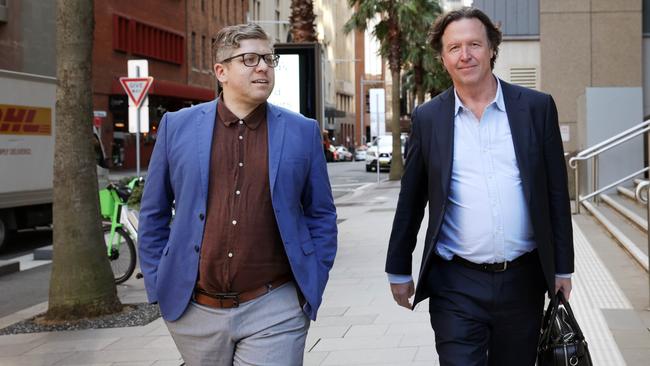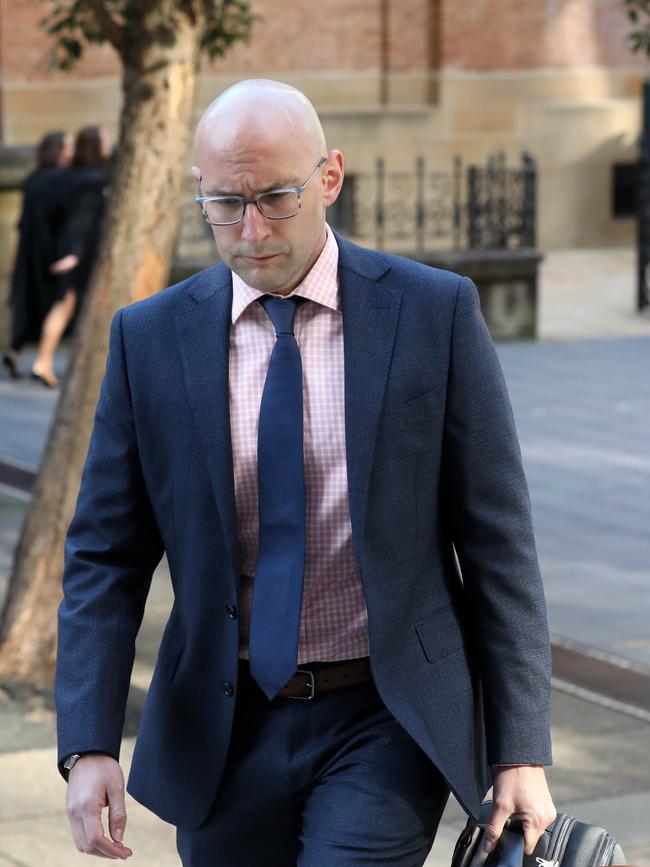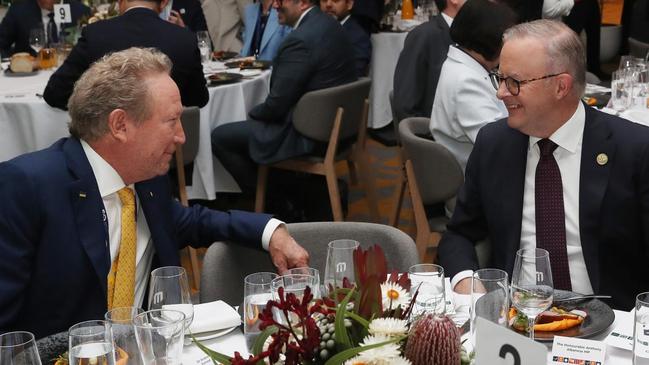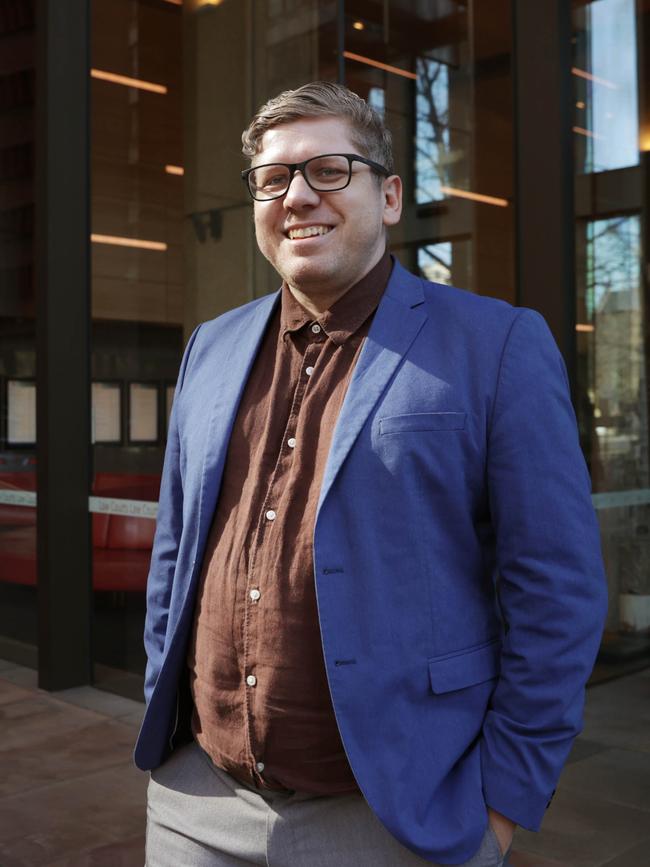Fortescue says spying on rival’s families was a standard court requirement and not in bad faith
Ex-Fortescue executives have heard that spying on their families and their ‘green iron’ start-up was part of a regular court requirement to grant raids.

Lawyers for Andrew Forrest’s Fortescue are doubling down on their legal fight against the company’s would-be “green iron” competitor, telling the Federal Court they were justified securing extraordinary orders to raid their rival’s homes and offices after an extensive surveillance operation.
The dispute broke out after Federal Court judge Melissa Perry granted search orders to Fortescue in May, allowing the mining giant to take information – including mobile phones, laptops and personal Google accounts belonging to ex-Fortescue executives Bart Kolodziejczyk, Bjorn Winther-Jensen and long-term Andrew Forrest lieutenant Michael Masterman and their green iron start-up, Element Zero.
Fortescue alleged the three men who founded Element Zero stole the mining giant’s confidential intellectual property; that being how to produce so-called “green iron” – a carbon dioxide-free technology – to launch their own company.

On Tuesday, Fortescue barrister Julian Cooke, SC, said the scope of things taken from Element Zero properties and businesses was necessary and the “extent” of a surveillance operation carried out by private investigator Robert Lancaster before the raids was a “collateral issue”.
“(There was) a real risk if information (about the pending court case) was provided in advance, there was a real risk that information might have been destroyed, hidden or squirrelled away,” Mr Cooke said.
Later, Mr Cooke said Element Zero’s argument should be rejected that Fortescue’s surveillance, which included following Dr Kolodziejczyk and Dr Winther-Jensen’s wives to Kmart, rummaging through their mail and taking pictures of Element Zero offices and plant – was conducted in “bad faith”.
“It’s true the private investigator reports are detailed, but so what?” he said.
“They reflect the standard basis on which reports are commissioned.”
In their bid to have the search orders thrown out, Element Zero barrister David Studdy, SC, on Monday argued Fortescue failed to tell Justice Perry that Dr Kolodziejczyk and Dr Winther-Jensen were instructed to work from home in the weeks before they left Fortescue, and since their IT access was cut off they were forced to work on their own devices and asked to delete some documents because there were copies.
Mr Cooke told the court Element Zero’s bid to have the search orders discharged was a “cynical attempt” to prevent his client from viewing material seized in raids and to delay filing their defence.

“The discharge application has been a monumental waste of time and is a distraction from the real issues to be decided,” he said.
Documents and emails referred to intellectual property concepts about “green” projects, including the green iron concept the court heard.
Mr Cooke said the evidence before Justice Perry supported her conclusion that Fortescue had a “strong prima facie case” in favour of granting the search orders.
Significantly, he denied Element Zero’s claim that Justice Perry should have been told they were co-operating with Fortescue to allay the mining giant’s concerns in December last year and January this year by meeting with it to discuss technical differences between the organisations’ green technologies – before she approved the search orders.
“Mr Masterman was co-operating because he wanted to persuade Fortescue there were no relevant similarities between the Element Zero electrochemical reduction process and the Fortescue electrochemical reduction process so that Fortescue would not bring a case on any such claim,” he said.
“Fortescue’s pleaded case … is (not) that the Element Zero process is the same or similar to the Fortescue particle process.

“Rather, the respondent misused what’s defined as the Fortescue Confidential information – the ionic liquid research and development which is fundamentally different from the Fortescue particle process.”
Mr Cooke said Fortescue also claims Element Zero misused its confidential plant information.
He also argued there was an “unexplained resource deficit” worth about $10m, and therefore the only explanation as to Element Zero’s progress and development of a pilot plant between 2021 and 2023 is that the start-up must have used Fortescue’s resources to create it.
Mr Masterman and Dr Kolodziejczyk were in court for Tuesday’s hearing.
Federal Court judge Brigitte Markovic has reserved her judgment in the interlocutory matter.





